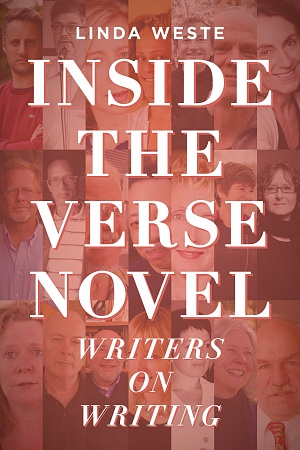'The divine stenographer: Victor Hugo and the glory of narrative' by Brian Nelson
For many of his contemporaries, Victor Hugo (1802–85) was the most important literary figure of the nineteenth century. He was considered the greatest French poet; he became the leader of the Romantic movement with the staging of his anti-classical play Hernani (1830); and he wrote monumental, hugely popular novels. He was also an iconic political figure. He played an active part in the 1848 Revolution on behalf of the Republicans, as a deputy for Paris; and in December 1851, when Louis Bonaparte (Napoleon’s nephew) staged his coup d’état against the Republic and restored the Empire, the Poet stood up against the Despot. Hugo tried unsuccessfully to organise resistance to the coup, and then, fearing for his life, fled Paris, disguised as a worker, and took refuge in Brussels. There he wrote Napoléon le Petit, a brilliant political pamphlet attacking the imperial régime. From Brussels he went to the Channel Islands, where he remained until the fall of the Second Empire in 1870.
Hugo returned to France in triumph. His prestige grew even greater as the Third Republic consolidated itself. When he died, in 1885, he was given a state funeral; it was as an icon of Republican ideals, a symbol of France itself, that he was laid to rest. Two million people followed the funeral procession to the newly deconsecrated Panthéon. In 1827 Hugo published a preface to his (unacted and unactable) play Cromwell.Though diffuse and repetitious, this text is of major importance in the development of the theory of modern drama and literature. It was the literary manifesto of Hugo’s generation. Equating Romanticism with the democratic spirit of the modern, post-revolutionary period, he called for a rejection of classical aesthetic doctrine, with its rule-bound insistence on the separation of the genres of tragedy (the sublime) and comedy (the grotesque), the unities of time and place, and a highly regulated poetic diction.
The most revolutionary of the Romantic innovations concerned language. The number of words considered permissible in French poetry (including verse drama) had been slowly diminishing since the days of Racine. A distinction had grown between words that were ‘noble’ and words that were ‘common’; and only the former were allowed in poetry. The strength of these conventions may be measured by the fact that the use of the word ‘mouchoir’ (handkerchief) during a performance of Othello a few years before 1830 produced a riot in the theatre. Hugo and his fellow Romantics threw the doors of poetry wide open to every available word and form of expression. The violence of the battle over Romanticism may be appreciated if one understands that the struggle was not simply academic, nor between the advocates of artistic freedom and those who believed that the form of expression must depend on tradition and a system of ‘rules’; Hugo’s dislodgement of the cultural norms of the establishment made it seem that the whole social order was, once more, being brought into question. In the polemical preface he wrote to the first edition of Hernani he declared that nineteenth-century France, as a new society with a new people, required a new literature.
In some ways it was unfortunate that the main battle over Romanticism took place in the theatre. Hernani is a piece of bombastic melodrama. Hugo’s later play Ruy Blas (1838) is somewhat better; but the main achievements of Romanticism lay in poetry and the novel. It is commonly agreed that, in one way or another, the whole of French poetry since Hugo owes him tribute. Without his enormous contribution to the revitalisation of poetic forms, the modernist experiments of Baudelaire, Rimbaud, Mallarmé, and Valéry would not have been possible. Hugo’s major prose narratives are works of historical fiction that reflect, in one way or another, the politics and social realities of the nineteenth century. The Hunchback of Notre-Dame (Notre-Dame de Paris, 1831) is bound up with the 1830 Revolution; Les Misérables (1862) with Hugo’s vendetta against Napoleon III; Ninety-Three (Quatrevingt-treize, 1874) with Hugo’s desire to help France find nationhood after the trauma of the Paris Commune. However, Hugo’s version of the historical novel is of a distinctive kind. His novels are extraordinarily rich in scope and style, to the extent that they defy conventional generic categorisation; they are characterised above all by their visionary and poetic force.
Hugo’s unique ability to combine drama, narrative, and poetry became apparent in The Hunchback of Notre-Dame, a tale of desire set in late medieval Paris, where all life is dominated by the great cathedral. The novel’s patterns of antithesis include the symbolic opposition between the king, the cruel and superstitious Louis XI, and the underworld of beggars and petty criminals whose night-time assault on the cathedral is one of the most spectacular setpieces of Romantic literature. The generous-spirited outcasts of society – the ‘grotesque’ hunchback Quasimodo and the gypsy dancer Esmeralda are exemplary Romantic heroes in this respect – are set in opposition to the dark forces of law and order.
‘The book was an enormous popular success, not only in France but throughout the world.’
The figure of the sublime outlaw finds its quintessential expression in Jean Valjean, the protagonist of Les Misérables. An honest peasant, he is sentenced to five years’ hard labour for stealing a loaf of bread, then nineteen more for trying to escape. Turned into a hardened criminal by his experiences, he reforms, establishes a new identity for himself, and becomes the respected mayor of a French town, where he befriends a young working woman named Fantine, who is forced into prostitution to support her child, Cosette. Valjean’s conscience compels him to reveal his true identity when an innocent vagrant, falsely accused of stealing apples, is mistaken for him. Valjean is imprisoned once more, but escapes. His flight from his nemesis, the police inspector Javert, culminates in one of the most famous scenes in literature, the chase through the sewers of Paris. The story of how Valjean struggles to escape his past and reaffirm his humanity in a world brutalised by poverty and ignorance became the Bible of the poor and the oppressed.
The book was an enormous popular success, not only in France but throughout the world. Its success as a didactic work on behalf of the poor was due in large measure to its powerful mythic dimension. Les Misérables is less a novel than an immense prose poem, perhaps the last and only genuine epic of modern times. Les Misérables is popular literature in the sense that Homer is popular literature: it addresses all mankind. It is deeply Romantic, not only in its humanitarian ideology, but also in its monumental exuberance of both form and content. Hugo’s vision is kaleidoscopic, his range of styles extraordinary. The narrative is strewn with his thoughts on society, politics, and religion, and regularly interrupted by encyclopedic digressions on such disparate topics as the linguistic structure of slang and the economics of recycling sewage; there is also a dissertation on closed religious orders and an epic retelling of the Battle of Waterloo.
The reputation Hugo acquired in the twentieth century as a master of sentimental clichés and pompous rhetoric has tended to obscure the complexities and inventiveness of his writing. Critics have argued increasingly, however, that a rereading of Hugo’s novels, especially Les Misérables, will reveal how surprisingly moderna writer he is. Les Misérables is one of the most ambitious narrative creations of the nineteenth century. It is not simply the story of a religious quest for redemption, and a novel of adventure akin to the sensational feuilleton literature of Eugène Sue (1804–57); it is an experiment in writing. Not only does Hugo’s prose have a surprising freshness, but the novel’s dazzlingly protean shapes – its multiplicity of voices, styles, and metaphoric patterns – make it one of the great novels of literary modernity.
Mario Vargas Llosa, in an expanded version of lectures given in Oxford in 2004 (The Temptation of the Impossible: Victor Hugo and Les Misérables, translated by John King, Princeton University Press, 2007, $36.95 hb, 208 pp, 9780691131115), succeeds admirably in evoking the essence of Hugo and, in so doing, offers some eloquent reflections on the art of fiction writing. The most important task of the novelist, he argues, is to invent a narrator. In Les Misérables, the narrator becomes the main character: remarkable for his ‘omniscience, omnipotence, exuberance, visibility, and egomania’, he is a ‘divine stenographer’ intent on writing a ‘total novel’, a splendid fiction that would enable its readers to experience the ‘vicarious, transient, precarious, and fascinating life of fiction’ and thereby to ‘incorporate the impossible into the possible’, which then helps readers to enjoy a richer, more intense existence beyond the ‘high-security prison that is real life’ and to ‘imagine a different and better world’. Is this not, Vargas Llosa asks, why novels exist?
Julie Rose has made a significant contribution, with her sharp and idiomatic translation of Les Misérables (Vintage, $29.95 pb, 1372 pp, 9780099511137), to the recent revaluation of Hugo as articulated by Vargas Llosa. She reproduces the freshness of Hugo’s prose, the precise sound of his voice, the specific rhythms and shapes of his sentences (including staccato sentences he suddenly throws at the reader after very long ones). She succeeds throughout her translation in creating a language that is rich and vibrant, lively and dramatic, and well suited to a long narrative – close to the captivating, quirky, racy tone that Hugo would have struck for his contemporaries. Moreover, unlike nearly all previous translators of the novel, she gives us the novel in its full unabridged glory.










Leave a comment
If you are an ABR subscriber, you will need to sign in to post a comment.
If you have forgotten your sign in details, or if you receive an error message when trying to submit your comment, please email your comment (and the name of the article to which it relates) to ABR Comments. We will review your comment and, subject to approval, we will post it under your name.
Please note that all comments must be approved by ABR and comply with our Terms & Conditions.